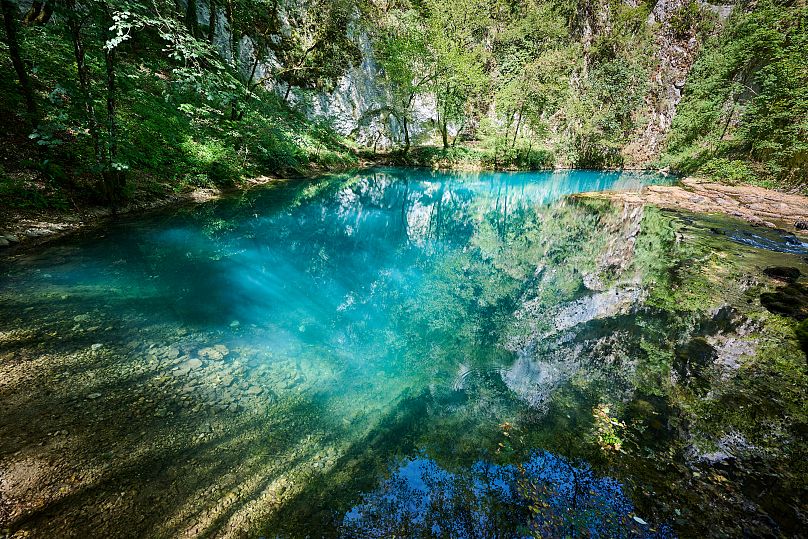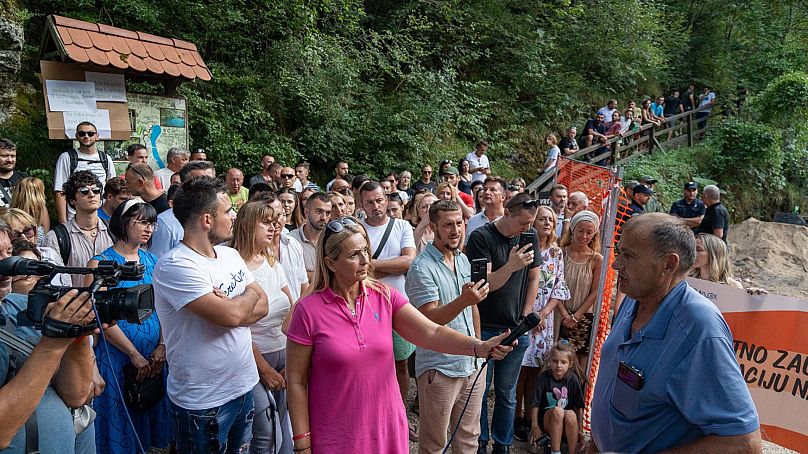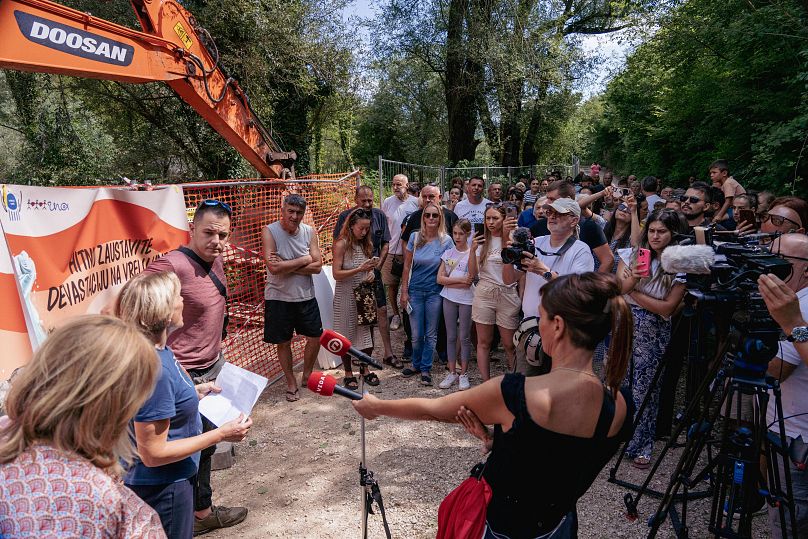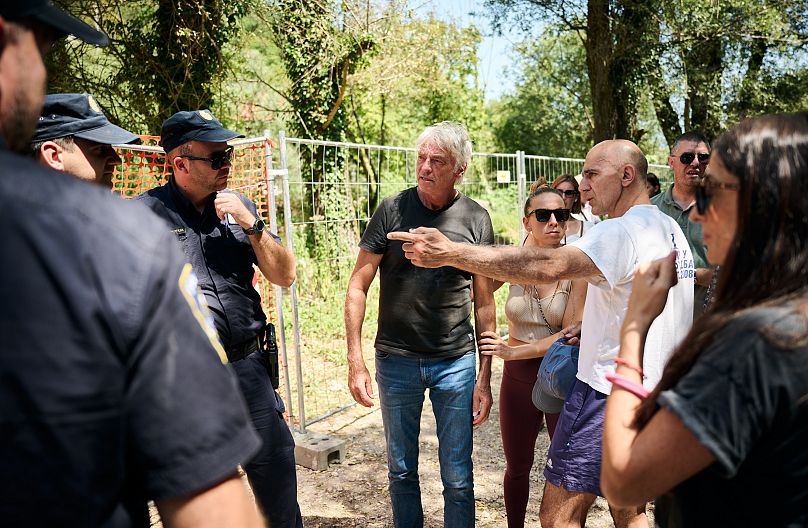Local NGOs say they don’t just fear for the Una but the precedent that this “crime on nature” sets for other rivers around Europe.
Protesters are blocking the construction of a small hydroelectric plant in Croatia that they say threatens one of the Balkans' most unique and sacred rivers.
 ADVERTISEMENT
ADVERTISEMENT
 ADVERTISEMENT
ADVERTISEMENT
The source of the Una River is one of the deepest karstic springs - where water flows up from conduits in the bedrock - on Earth. Running from Croatia into Bosnia and serving as a natural border, it carries major cultural significance and represents the shared heritage between the two countries.
The river is also home to 17 threatened species, and campaigners say the construction work puts this protected waterway at risk of serious environmental damage downstream.
The entirety of the small streams and sources that birth the river is protected under the Natura 2000 network - an EU initiative to preserve habitats and species of European importance.
Around 150 metres of its stream have been designated a hydrological monument of nature since 1968.
As the Una River runs into Bosnia and Herzegovina, parts of it are also protected as part of a national park.
Despite these protections, construction recently began on a hydropower plant just downstream of the river’s source which protesters say is being carried out without valid permits or regard for the site’s protected status.
Construction has left local residents without water
The rapid development of the project has locals and environmental groups alarmed - not least because many residents, especially in Bosnia, rely on the river for drinking water and other resources. Some say they were left without drinking water for several days at the height of one of this summer's heatwaves.
Local NGOs say they don’t just fear for the Una, however, but the precedent that this “crime on nature” sets for other rivers around Europe. They question how the developer obtained a permit from Zadar County to build the plant, claiming it was approved without an assessment of its environmental impact.
It isn’t just local residents that have objected to the construction of the hydroelectric dam either. The protest on Friday was backed by outdoor clothing brand Patagonia. More than 14,000 people have signed a petition to back the local objection to the project.
Numerous public figures and organisations from Bosnia, Croatia and Serbia have also supported the protests.
"The construction of the plant threatens not only the ecological integrity of the river, but also the way of life of people who have been tied to its banks for centuries. Una is threatened with devastation that will have long-term consequences for the environment and the communities that depend on it," Eko BiH, an environmental network from Bosnia and Herzegovina, said in a statement.
Construction has already reportedly resulted in damage, however, with the original pathway to the source razed to make room for machinery.
While the construction permit is technically still 'valid', activists say it should not have been issued without assessment of the impact of the plant on the environment and the assessment of the impact of the plant on the ecological network.
Officials have been assessing the legality of the work
Following protests and objections from public figures, the authority in charge of managing the Natura 2000 ecological network in the region requested an assessment of whether the construction had the correct permits.
In late July, officials from Croatia’s Ministry of Environmental Protection and Green Transition decided to examine the legality of the work.
While they found that the building permit was valid, they also determined that some documentation was missing from what is known as the location permit. The inspector found that before this permit was amended, an opinion was not requested from the right ministry on the need for an environmental impact assessment.
Citizens and officials from the three countries united on Friday to stand against the building work.
They managed to secure an agreement to temporarily halt work until 5 August. Work was due to resume on 6 August as the state inspectorate didn't issue any suspension documents which would prevent it from continuing while the review was ongoing.
Campaigners say these findings only confirm their concerns. Ongoing protests aim to put pressure on authorities to suspend construction while the documents are reviewed. They are also urging Croatia's Prime Minister to step in and intervene.














